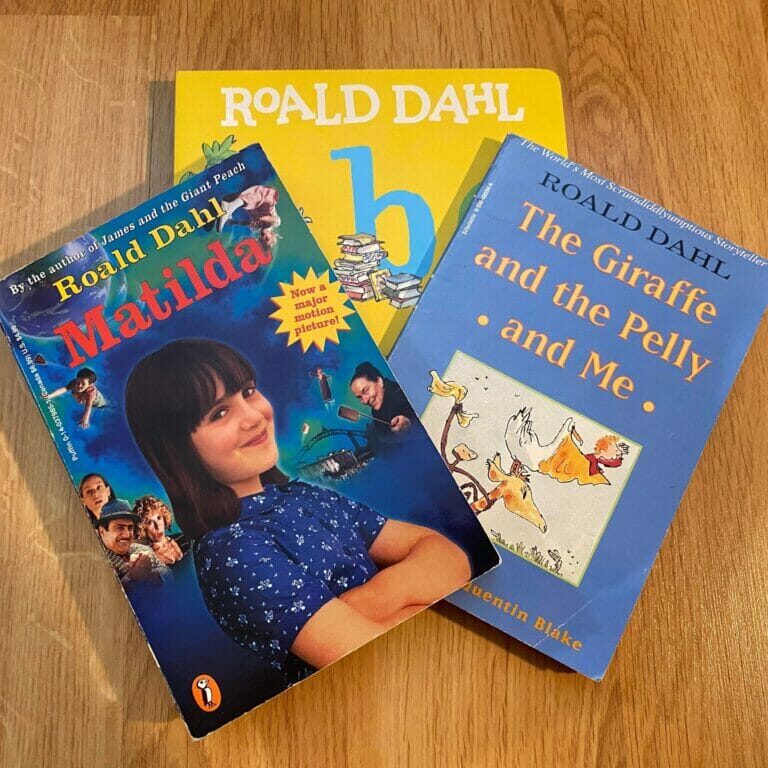
Making Dahl books more accessible
Can changing books change colonist-driven views?
Lots of millennials and gen-Zs grew up with Roald Dahl books read to them by their parents. Like a lot of popular classic literature, it hasn’t evolved to fit within what we consider inclusive by today’s standards.
So, should the books be changed? Puffin Books thought so, but others disagree.
The BFG, George’s Marvellous Medicine, The Twits, James and the Giant Peach, Matilda and Charlie and The Chocolate Factory are just a few titles in the long list of children’s stories written by Dahl. The ones in this list are also a few of my personal favourites.
I remember reading The BFG and James and the Giant Peach over and over again as a kid. Not to mention my mother reading them to me. Her favourite was always Fantastic Mr. Fox until she read my younger brother George’s Marvellous Medicine and became utterly entranced.
Several of these books have also been adapted for the cinema: Matilda (1996), The BFG (2016), Charlie and the Chocolate Factory (2005) and The Witches (2020). The hilarious illustrations, vivid imagery and straight-up ridiculous situations the main characters find themselves in keep everyone engaged in the story all the way through. A telltale sign of good writing, right?
There is one thing that each story lacks: inclusivity. For a piece of work to be considered good in today’s world, stories need this. Don’t they?

Finding inclusivity in Dahl
Inclusivity is incredibly important. We are trying to decolonize our literature, our history and our knowledge systems. At the same time, we’re trying to give people of all backgrounds equal opportunities in education, the workforce and health care. All the things that are considered human rights, but don’t always get shared equally.
Surely, this is reflected in the literature we read.
Many children’s books and young adult novels today are written with the intent to include different people. Teaching younger generations that there is more than one way to tell a story is important and necessary for them to take on the world.
The Roald Dahl Story Company has been reviewing its works since 2020, with rights being acquired by Netflix. You can see where they’re coming from — reviewing the works and intending to make little tweaks here and there to take out ableist, racist and sexist language.
By removing the non-inclusive language that young malleable minds consume, we teach children to speak and behave more kindly to others.
Changing language to reflect modern societal views is a good way to help younger generations ingest these values in theory. That’s what Puffin Books tried to do — tweak the Dahl books just enough to keep the story the same with slightly less offensive language.
I completely disagree with this approach. What sounds good in theory doesn’t always pan out in practice.
Decolonizing literature threatens memories of our mistakes
The stories change when the language is changed. Like when words in other languages don’t have English translations. I remember reading a translated version of MulBerry and Peach: Two Women of China and found that English compensated for the idioms used in Mandarin with wordiness, losing some of their meanings.
If the Dahl books are tweaked or censored, we’ve essentially stripped them of their context.
Part of learning to be a kind, inclusive person is learning about the nasty, gross, insulting things that have been said and written about by those who are different from us.
We are all made of stories, both good and bad. Our families are also made up of stories. These stories, these lived experiences all hold lessons, pain and joy. They are just as important as any other story.
The same goes for the classic literature that we consume. Which is by no means an incredibly diverse field, thanks to centuries of Eurocentric power structures. Censoring or tweaking the language in texts already written is like slapping a BAND-AID over a cut that hasn’t been disinfected. It just covers up something that is bound to fester.
Publishing both
Puffin Books changed its stand on editing the works after coming under fire. Now, the publishers are printing both changed, and unchanged classic versions of the stories in their original text. This is for the best.
Literature needs to be read, just as air needs to be breathed, regardless of how offensive or distasteful it is. Dahl is no exception. Sure, there are things in his books that are a little outdated and frankly could be read as supporting colonial ideas (I’m looking at Willy Wonka). But I think we’re forgetting that a lot of commentary about the world happens in children’s books. Covering the eyes and ears of younger generations hasn’t worked well so far. It results in banned books and increased interest in those materials. What makes Puffin Books think it’ll work now?
Inclusive children’s literature exists and it’s brilliant. Teach inclusivity using books that use it now and teach the past with books from the past.






